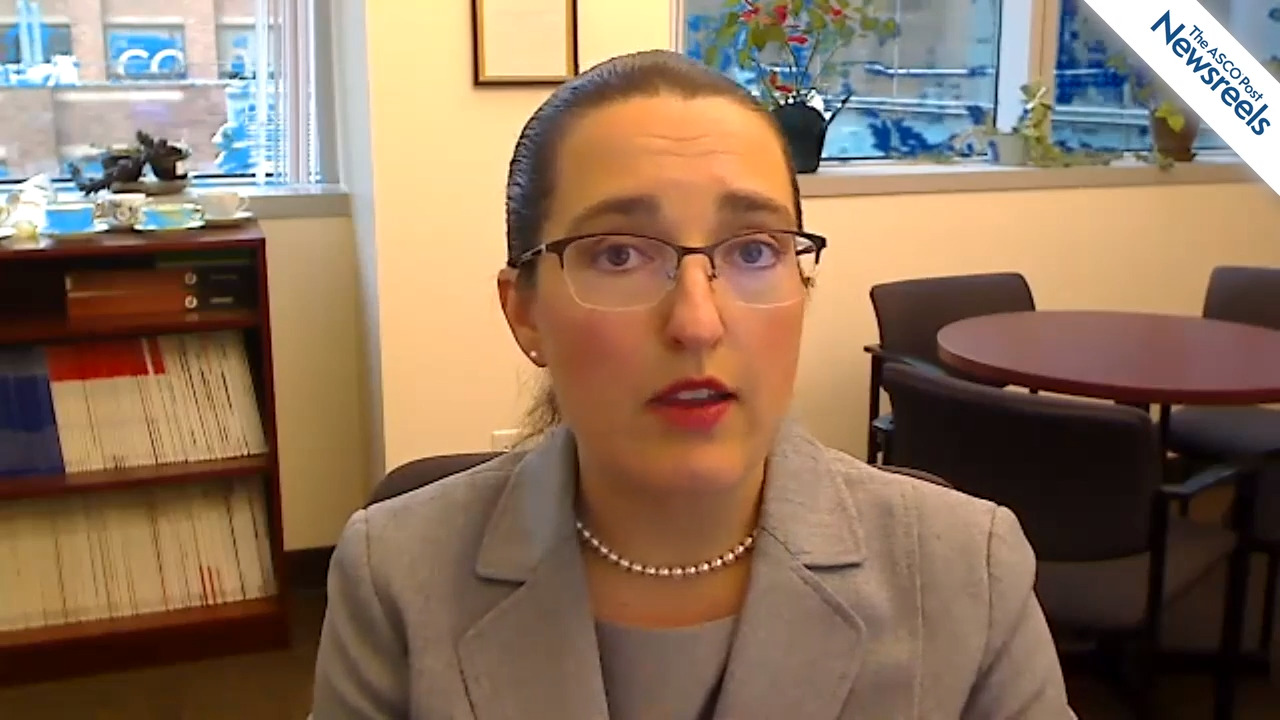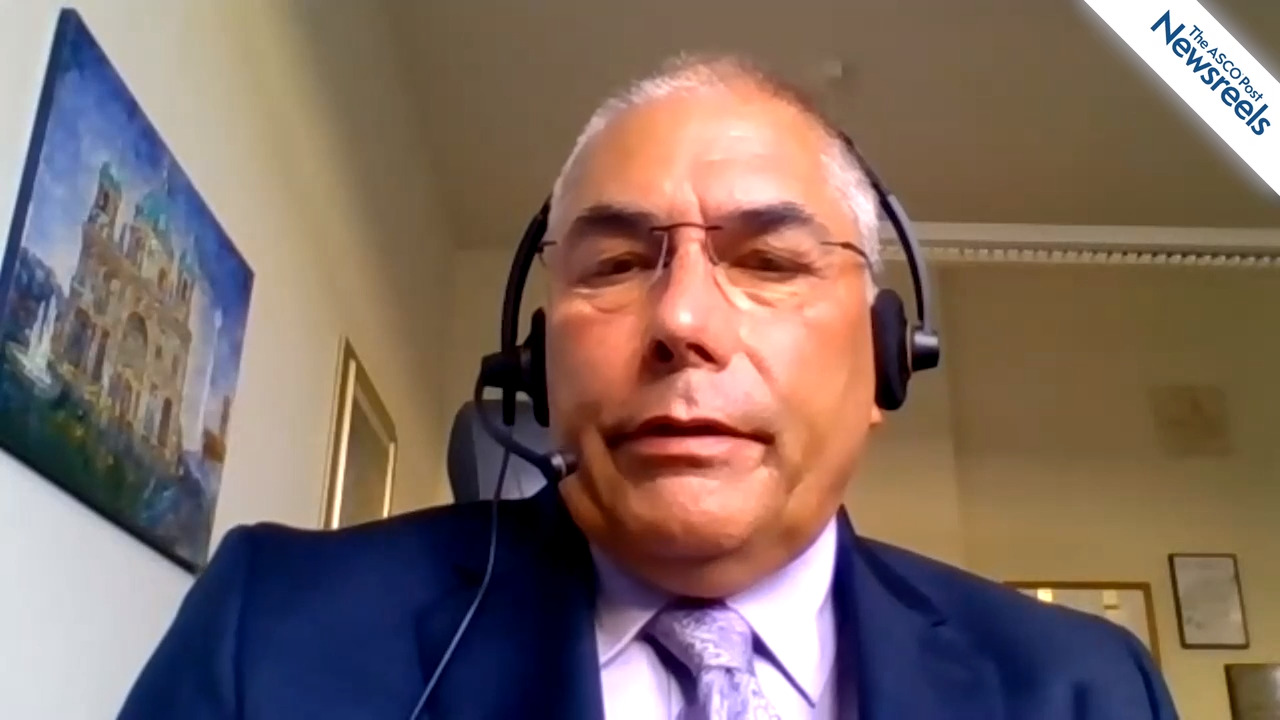Suresh S. Ramalingam, MD, on NSCLC: Nivolumab Plus Ipilimumab vs Chemotherapy
ASCO20 Virtual Scientific Program
Suresh S. Ramalingam, MD, of Emory University, discusses a 3-year update from the CheckMate 227, Part 1, trial, which showed that nivolumab plus ipilimumab continued to provide durable and long-term overall survival benefit vs platinum-doublet chemotherapy as first-line treatment for patients with advanced non–small cell lung cancer (Abstract 9500).
The ASCO Post Staff
Rachel E. Sanborn, MD, of the Providence Cancer Institute, discusses three key abstracts on EGFR-mutated non–small cell lung cancer: a final overall survival analysis of bevacizumab plus erlotinib; concurrent osimertinib plus gefitinib for first-line treatment; and first-line treatment with a tyrosine kinase inhibitor with or without aggressive upfront local radiation therapy (Abstracts 9506, 9507, 9508).
The ASCO Post Staff
Andres Poveda, MD, of Initia Oncology, discusses phase III results from the SOLO2 trial, which showed that, compared with placebo, maintenance olaparib improved median overall survival by 12.9 months in patients with platinum-sensitive, relapsed ovarian cancer and a BRCA mutation (Abstract 6002).
The ASCO Post Staff
Christopher Sweeney, MBBS, of Dana-Farber Cancer Institute, talks with Thomas Powles, MD, PhD, of Queen Mary University of London, about the first study to demonstrate a survival advantage with avelumab for metastatic urothelial cancer. In the trial, avelumab improved median overall survival by 21.4 months compared with 14.3 months with best supportive care (Abstract LBA1).
The ASCO Post Staff
Peter Reichardt, MD, PhD, of Helios Klinikum Berlin-Buch, discusses the 10-year survival analysis of 3 years vs 1 year of adjuvant imatinib for patients with high-risk gastrointestinal stromal tumor. The study found that about 50% of deaths can be avoided with longer imatinib treatment (Abstract 11503).
The ASCO Post Staff
Michael S. Hofman, MBBS, of the Peter MacCallum Cancer Centre, discusses phase II results from the ANZUP 1603 trial, which showed that in men with docetaxel-treated metastatic castration-resistant prostate cancer, LuPSMA was more active than cabazitaxel, with relatively fewer grade 3 and 4 adverse events and a more favorable PSA progression-free-survival (Abstract 5500).





